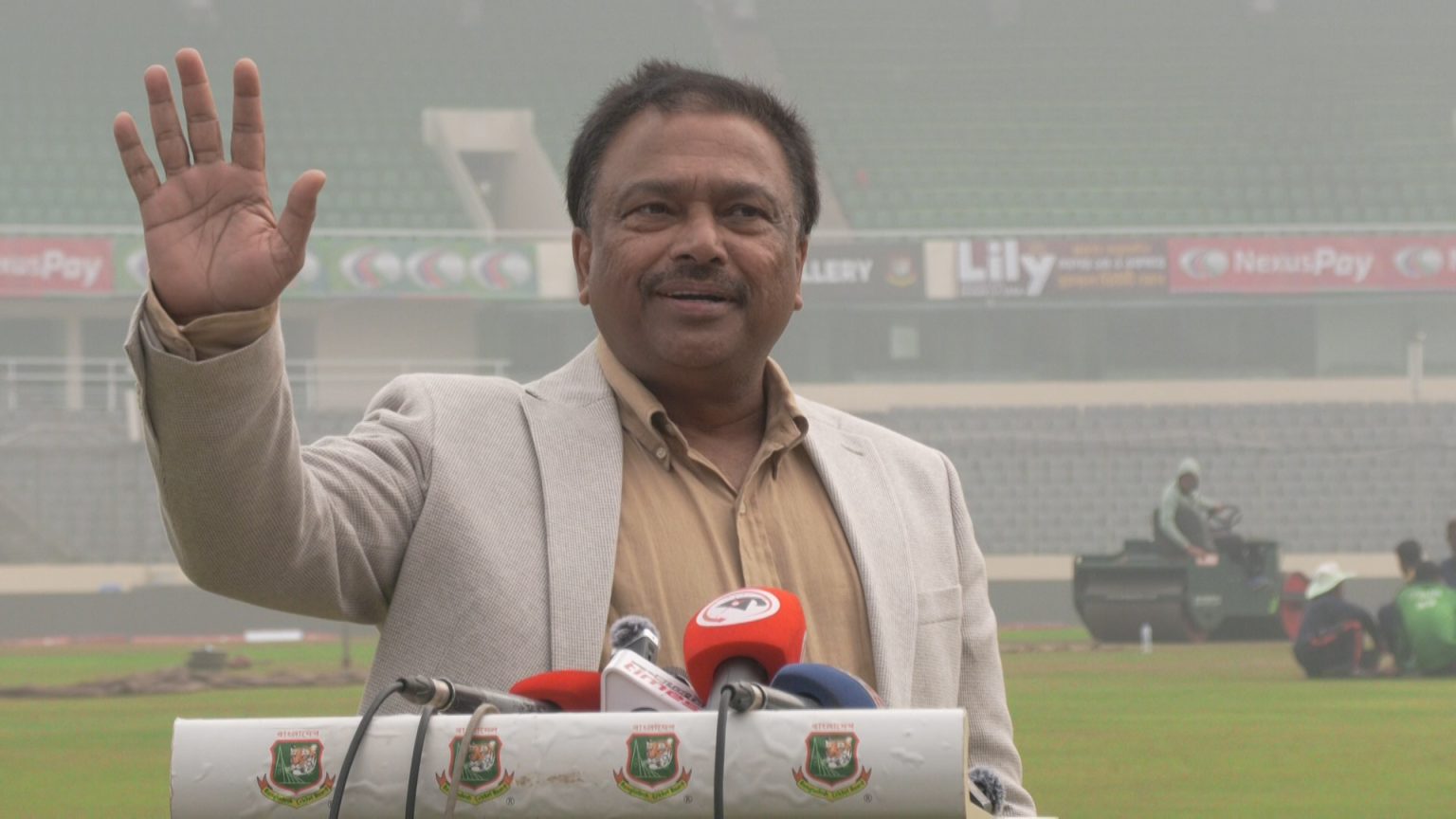Faruque Ahmed, the president of the Bangladesh Cricket Board (BCB), is facing growing pressure from the national government to step down after just nine months in office. The Ministry of Youth and Sports officially informed Faruque of their decision during a meeting on Wednesday, with Youth and Sports Affairs Adviser Asif Mahmud Shojib Bhuiyan conveying that the government no longer wished for him to continue in his role.
Faruque, who took over as president following the departure of Nazmul Hasan last August, has not yet made a decision regarding his resignation. “The advisor said that they don’t want to continue with me,” Faruque told the Daily Star, then he added, “I have not taken any decision yet. Let’s see what happens. No, I’m not resigning. There’s no reason for me to resign at the moment. They haven’t given me any explanation, so why should I step down?”
The situation surrounding Faruque’s potential resignation has raised concerns among stakeholders in the cricketing community, as any forced removal could lead to accusations of government interference, a violation of International Cricket Council (ICC) ethics.
The ICC, which governs international cricket, maintains strict regulations on the autonomy of national cricket boards. If a country’s government is perceived to be interfering in the administration of its cricket board, it could result in severe consequences. In the past, Sri Lanka and Zimbabwe have faced suspensions for government interference, which led to bans from participating in ICC events, including the World Cup and other international tournaments. If Bangladesh’s government forces Faruque out without his voluntary resignation, the ICC could take similar action, jeopardizing Bangladesh’s participation in global cricket events.
While government figures have expressed dissatisfaction with Faruque’s leadership, including allegations of autocratic governance and failures in managing the Bangladesh Premier League (BPL), the situation remains fluid. Eight BCB directors recently submitted a no-confidence motion against Faruque, citing his alleged breach of the BCB constitution. They accused him of dismissing head coach Chandika Hathurusingha without proper consultation with the board and failing to carry out due diligence when approving new BPL franchises. The directors also expressed concerns over what they described as a lack of transparency and democratic leadership.
Faruque has dismissed the accusations, and in response to the no-confidence motion, he suggested he might pursue legal action, claiming that the BCB constitution does not mention such a motion. “I will speak to my lawyer about the letter. I might take legal action,” Faruque said. “There is no mention of a no-confidence motion in the BCB constitution, so I don’t think it matters.”
Adding to the uncertainty, former national captain Aminul Islam is reportedly being considered as a potential successor. Aminul, who currently works for the ICC as a development officer, is expected to seek a three-month notice period before officially taking over as the next BCB president.
Faruque’s removal, if enforced by the government, would be a significant blow to the BCB’s governance. The decision, taken by the Ministry of Youth and Sports, followed an investigation into the Bangladesh Premier League (BPL) and the findings of a fact-finding committee. The Sports Ministry’s statement confirmed that Faruque’s nomination as the representative of the National Sports Council (NSC) to the BCB board had been cancelled, citing the no-confidence motion from the board members and the committee’s report.
Should the situation escalate and Bangladesh face ICC sanctions, the consequences could be dire for the country’s cricketing future. In addition to being barred from competing in major ICC events like the World Cup, Bangladesh would lose access to essential ICC funding and support for grassroots cricket development. The ban would also severely damage the country’s cricketing reputation, isolating Bangladesh from international cricket for an extended period. Players, who are already deeply affected by the uncertainty surrounding their leadership, may face a significant disruption to their careers, especially as international fixtures are rescheduled and reorganized.
For now, the future of Bangladesh’s cricket leadership remains uncertain, with Faruque’s next move closely watched by both local and international cricketing bodies.


